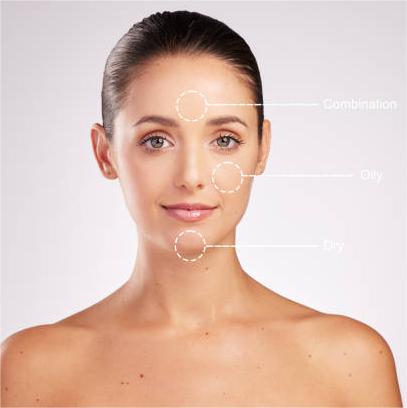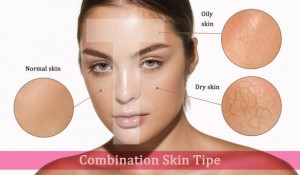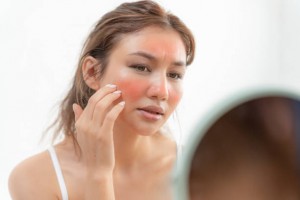Proper skincare is essential for maintaining healthy and radiant skin. However, before embarking on a skincare routine, it is crucial to identify your skin type. Understanding your skin type allows you to select products and treatments that cater specifically to its needs, ensuring optimal results. In this article, we will delve into the various skin types and provide expert tips on how to determine your own. Armed with this knowledge, you will be empowered to take better care of your skin and achieve a glowing complexion.
1. The Importance of Knowing Your Skin Type:
As the famous proverb goes, "Know yourself and the enemy, and you will never be in danger." This holds true for skincare as well. Each skin type has distinct characteristics and requires tailored care. Treating your skin without understanding its specific needs can cause unfavorable reactions, worsening existing issues or creating new ones. Therefore, before investing in products or treatments, determining your skin type is crucial.

2. Identifying Common Skin Types:
a) Normal Skin
Normal skin is well-balanced, not too oily or dry, and has minimal imperfections. It has a smooth texture and a healthy glow. People with normal skin rarely experience sensitivity or breakouts.


b) Oily Skin:
Oily skin is characterized by excessive sebum production. It tends to have enlarged pores, a shiny appearance, and is more prone to acne and breakouts. People with oily skin may also struggle with an uneven complexion.
c) Dry Skin:
Dry skin lacks moisture and can feel tight or rough. It may appear dull and flaky, especially in colder seasons. Individuals with dry skin are more prone to fine lines, wrinkles, and sensitivity.


d) Combination Skin:
Combination skin is a blend of different skin types. Typically, the T-zone (forehead, nose, and chin) is oily, while the cheeks and other areas may be dry or normal. Finding the right balance in skincare for combination skin can be a challenge.
e) Sensitive Skin:
Sensitive skin is easily irritated and can react negatively to various products or environmental factors. It often appears red, itchy, or inflamed. People with sensitive skin need to be cautious and gentle with their skincare choices.

3. Determining Your Skin Type:
To determine your skin type accurately, try the following methods:
a) Cleanse your face thoroughly and avoid applying any products.
b) After an hour, observe your skin in a well-lit area.
c) If your skin feels comfortable and shows no signs of oiliness or dryness, you likely have normal skin.
d) If your skin appears shiny, predominantly around the T-zone, you likely have oily or combination skin.
e) If your skin feels tight or looks flaky, especially after washing, you likely have dry skin.
f) If your skin exhibits signs of redness, itchiness, or reacts instantly to certain products, you likely have sensitive skin.
4. Skincare Tips for Each Skin Type:
a) Normal Skin:
Normal skin requires basic care, including cleansing, moisturizing, and sun protection. Using mild, gentle products is recommended to maintain its natural balance.
b) Oily Skin:
For oily skin, focus on deep cleansing and using lightweight, oil-free products. Incorporating oil-absorbing ingredients like salicylic acid and clay can help control excessive sebum production.
c) Dry Skin:
Dry skin requires intense hydration. Opt for products rich in hydrating ingredients such as hyaluronic acid and incorporate a regular exfoliation routine to remove dead skin cells and promote a smoother complexion.
d) Combination Skin:
Balancing the needs of combination skin requires a targeted approach. Use oil-free products on the T-zone to control shine, while hydrating the drier areas. Regular exfoliation can also help maintain a balanced complexion.
e) Sensitive Skin:
When dealing with sensitive skin, opt for fragrance-free, hypoallergenic products that are gentle and soothing. Perform patch tests before introducing new products and avoid harsh ingredients such as alcohol or fragrances.
Understanding your skin type is the first step towards achieving healthy, glowing skin. By identifying your specific skin characteristics, you can customize your skincare routine, target problem areas, and achieve optimal results. Remember to be patient and consistent in your efforts, as skincare is a long-term commitment. So, take the time to know your skin, invest in suitable products, and embrace the journey towards a radiant complexion.
Post time: Sep-15-2023

